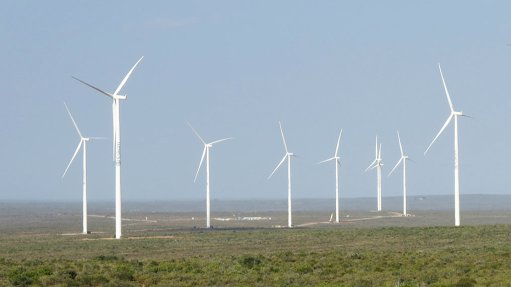Trade facilitation versus protectionism
In the instalment of this column published on July 3, which was titled ‘Protectionism on the increase’, I expressed my concern at the intensification of the protectionist mentality. Those old enough would acknowledge that the underlying reason for the start of the Second World War was the ‘R’ word – recession.
And what drove the international recession? The ‘P’ word – protectionism. Shortly after the end of the First World War (WWI), countries began closing their markets in a deliberate attempt to stem or even prevent imports. As a consequence, international economic theory developed over centuries was discarded. But that came at a price. It merely ignited the destructive nature of humankind placing its people in direct conflict with one another. Contrary to popular belief, it was not a zero-sum game, meaning that, for all winners, there are losers. No, it was a collective loss – there were simply no winners.
The end of WWI resulted in the planting of a seed that led to the establishment of what came to be known as the World Trade Organisation (WTO).
On July 24, the WTO released its director- general’s midyear report on trade-related developments. According to the report, between mid-October 2019 and mid-May 2020, WTO members implemented 363 new trade and trade-related measures, 198 of which were trade facilitating and 165 trade restrictive. The majority of these – 256, or 70.52% – were linked to the Covid-19 pandemic. Ironically, the pandemic might well initially be the driving force behind the shift towards import-facilitating measures, which might well reverse as countries race to support – or protect – their domestic industries.
The report states that “WTO members continued to implement general economic support measures as part of their overall trade policy, a fact confirmed by the WTO secretariat’s analysis, despite governments’ low response rate with respect to these measures”. The report further states that “WTO members and observers also implemented a large number of emergency support measures in response to the economic and social turmoil caused by the Covid-19 pandemic”.
Interestingly, the WTO found that “most of the 468 Covid-19-related general economic support measures identified, including monetary, fiscal and financial measures, as well as preferential loans, credit guarantees and stimulus packages, collectively worth several trillion US dollars, appeared to be temporary in nature”.
The report observes that central to governments’ strategies to address the Covid-19 pandemic-induced economic downturn and lay the foundation for a supposed strong recovery are these emergency support measures. It would be interesting to see whether the WTO will be able to monitor and track the evolution of these emergency support measures, and record their success in facilitating economic recovery.
More concerning are the invisible measures of protectionism – nontariff barriers. According to the WTO, its members were “very active in the sanitary and phytosanitary measures and technical barriers to trade”, which one would expect to increase as the domestic economic challenges worsen as a result of Covid-19.
The report also covers an aspect that does not always receive a lot of media coverage when international trade is discussed, namely the WTO Agreement on Agriculture. The report notes that it was understood that “WTO members continued to extensively use the Committee on Agriculture review process and raised a total of 298 questions in relation to members’ individual notifications and on specific implementation matters. In relation to the Covid-19 pandemic, three WTO members informed the committee of four temporary measures to respond to food security threats”.
These are extremely dark international economic times and the adage that charity begins at home should not be underestimated. The rise of nationalistic calls is not unexpected. Once, it was ‘America First’; soon it will have to be ‘South Africa First and Foremost’.
Article Enquiry
Email Article
Save Article
Feedback
To advertise email advertising@creamermedia.co.za or click here
Press Office
Announcements
What's On
Subscribe to improve your user experience...
Option 1 (equivalent of R125 a month):
Receive a weekly copy of Creamer Media's Engineering News & Mining Weekly magazine
(print copy for those in South Africa and e-magazine for those outside of South Africa)
Receive daily email newsletters
Access to full search results
Access archive of magazine back copies
Access to Projects in Progress
Access to ONE Research Report of your choice in PDF format
Option 2 (equivalent of R375 a month):
All benefits from Option 1
PLUS
Access to Creamer Media's Research Channel Africa for ALL Research Reports, in PDF format, on various industrial and mining sectors
including Electricity; Water; Energy Transition; Hydrogen; Roads, Rail and Ports; Coal; Gold; Platinum; Battery Metals; etc.
Already a subscriber?
Forgotten your password?
Receive weekly copy of Creamer Media's Engineering News & Mining Weekly magazine (print copy for those in South Africa and e-magazine for those outside of South Africa)
➕
Recieve daily email newsletters
➕
Access to full search results
➕
Access archive of magazine back copies
➕
Access to Projects in Progress
➕
Access to ONE Research Report of your choice in PDF format
RESEARCH CHANNEL AFRICA
R4500 (equivalent of R375 a month)
SUBSCRIBEAll benefits from Option 1
➕
Access to Creamer Media's Research Channel Africa for ALL Research Reports on various industrial and mining sectors, in PDF format, including on:
Electricity
➕
Water
➕
Energy Transition
➕
Hydrogen
➕
Roads, Rail and Ports
➕
Coal
➕
Gold
➕
Platinum
➕
Battery Metals
➕
etc.
Receive all benefits from Option 1 or Option 2 delivered to numerous people at your company
➕
Multiple User names and Passwords for simultaneous log-ins
➕
Intranet integration access to all in your organisation

















